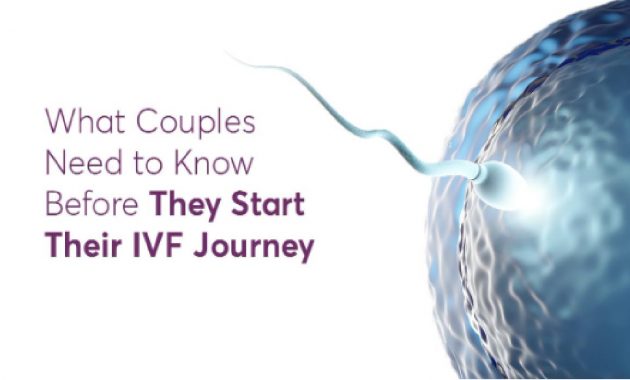From the first visit and preparation to the process, aftercare and emotional support – know what an IVF journey for couples can be like.
Published: 25 Jun 2024, 16:55 pm IST
The journey to parenthood is full of hope, anticipation, and multiple questions. For so many couples affected by infertility, IVF is a ray of hope. However, before starting with IVF, couples need to be well-prepared and informed. This blog is here to provide you with the answers to all your questions about IVF.
What is IVF?
In vitro fertilization (IVF) is a medical procedure in which an egg is fertilized by sperm outside the body in a sterile chemistry lab. If fertilization comes out successful, then the formed embryo gets placed in the woman’s uterus in hope of a successful pregnancy. Understanding the IVF treatment process is important for couples before they opt for this procedure.
First Visit and Diagnosis
The initial act of the IVF journey is consulting with a fertility expert. The specialist will review the medical history, conduct physical examinations, and prescribe a sequence of tests for the couple. These tests are mainly blood tests to check estrogen and testosterone levels, ultrasounds to evaluate ovarian reserves, and sperm analysis to judge the quality of the sperm.
Key Preparations for the IVF Process
Financial Planning: IVF treatment carries a hefty price tag. Couples should know the financial implications of IVF before they begin their journey. Therefore, key factors like researching the clinics, staying informed about the costs, and looking for financial solutions should be considered. Besides that, many couples review their insurance coverage to find out whether there are any assistance programs that they can take advantage of.
Emotional Readiness: The emotional stress of IVF is significant. Couples should expect the emotional highs and lows that come with each stage of IVF treatment and be ready for it. The most preferable activities are counseling and support groups.
Also Read

Lifestyle Adjustments: Leading a healthy life is important for the success of the IVF treatment process. Couples can be the healthiest when they consume a nutritious diet, are physically active, and do not consume substances such as tobacco and alcohol in excess. Likewise, by releasing tension through activities such as yoga and meditation, stress can be managed.
The IVF Treatment Process: Step by Step
Ovarian Stimulation: The first step in the IVF treatment program is ovarian stimulation to produce multiple eggs. This can be done by using hormones in the form of injections taken for a few days. Monitoring through regular blood tests and ultrasound procedures verifies the correct growth and development of the follicles.
Egg Retrieval: Once the eggs are mature, a minor surgical procedure called egg retrieval is performed. Under anesthesia, the eggs are removed from the ovaries using a fine needle. This step generally takes about 20-30 minutes, and the patients are allowed to return home the same day.
Sperm Collection: On the day of egg retrieval, the male partner provides a semen sample. The sperm that has been collected and processed is then prepared for fertilization. In cases where male infertility is a concern, surgical sperm retrieval techniques may be employed.
Fertilization and Embryo Culture: The collected eggs and sperm are mixed in the laboratory during the initial developmental stage to start the fertilization process. Intracytoplasmic sperm injection (ICSI) which is a procedure where one sperm is injected directly into the egg, is sometimes performed when needed. The resulting embryos are then kept in a specialized incubator for several days before being transferred back to the uterus.
Select Topics of your interest and let us customize your feed.
PERSONALISE NOW
Embryo Transfer: When the embryos are in the appropriate stage of development, which is usually between day 3 and day 5, one or more embryos are chosen to be transferred. At the time of the transfer, the embryos are placed into the uterus using a thin catheter. This is a painless procedure, and no anesthesia is required.
Post-Transfer Care
The Two-Week Wait: Couples are in the “two-week wait” phase after the embryo transfer. The woman may still be on medication to support the uterine lining and improve the chances of pregnancy. In this stage, both rest and avoidance of any stressful activities are important.
Pregnancy Test: Approximately 14 days after the embryo transfer, a blood test is required to confirm if implantation has occurred.
Managing Expectations
Success Rates: Success can depend on multiple factors, including the woman’s age, the cause of infertility, and the quality of the eggs and sperm.
Several Cycles: It is not uncommon for a couple to undergo a number of IVF cycles before achieving a successful pregnancy. Couples must mentally prepare for this outcome and keep on being positive.
The Importance of Support
Partner Support: A positive relationship is the key to a successful IVF journey. Therefore, the couple should maintain open communication and mutual understanding and extend emotional support to each other. Equally dividing the duties and staying connected as a team can ease the burden of IVF treatment and even strengthen bonding between the partners.
Family and Friends: Getting close relatives and friends to be with you can add emotional support. Nevertheless, it is imperative to define the boundaries and start a clear dialogue with your partner about the nature of your willingness to be involved and the information you will be sharing with others.
Professional Support: It may be a great idea for you to find a professional counselor or psychologist or attend some support groups for help. These, in turn, offer a safe place where you can express your emotions, ask for advice, and make friends with others who are facing the same problems as you are.
Conclusion
An IVF treatment process is a journey that requires careful planning, mental readiness, and a strong support system. The best way to get the expected outcome is through staying informed, managing expectations, and prioritising emotional well-being.
#Couples #Start #IVF #Journey
